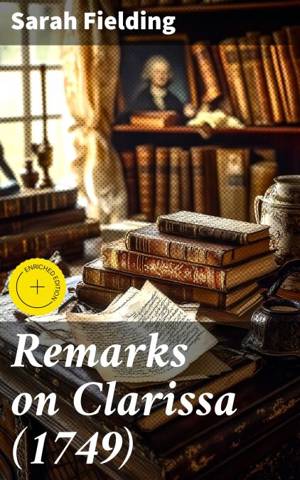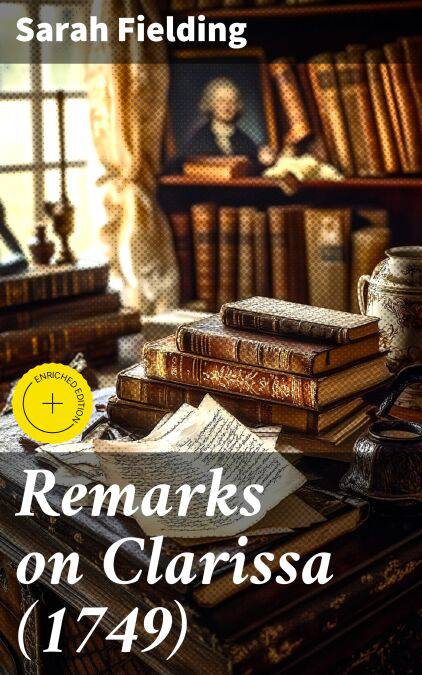
- Afhalen na 1 uur in een winkel met voorraad
- Gratis thuislevering in België vanaf € 30
- Ruim aanbod met 7 miljoen producten
- Afhalen na 1 uur in een winkel met voorraad
- Gratis thuislevering in België vanaf € 30
- Ruim aanbod met 7 miljoen producten
Zoeken
Remarks on Clarissa (1749) E-BOOK
Unveiling Gender Dynamics in 18th-Century Fiction Criticism
Sarah Fielding
E-book | Engels
€ 2,49
+ 2 punten
Omschrijving
In 'Remarks on Clarissa,' published in 1749, Sarah Fielding offers a critical yet affectionate analysis of Samuel Richardson's monumental epistolary novel, 'Clarissa Harlowe.' Fielding's prose is characterized by its insightful observations and clarity, demonstrating her keen understanding of the complex interplay of gender dynamics and moral philosophy within Richardson's work. She deftly navigates themes of virtue, agency, and societal expectations, situating her commentary within the burgeoning discourse on women's literature and the novel as a legitimate art form. This work also reflects Fielding's own literary developments as she champions emotional truth and narrative depth, aligning herself with Richardson's explorations while also carving out her unique voice in the literary landscape of the 18th century. Born in 1710, Sarah Fielding was an influential figure in the early development of the English novel and is often considered one of its pioneer female authors. As the sister of novelist Henry Fielding and an accomplished writer in her own right, she was surrounded by literary innovation. Her familiarity with contemporary works and her intimate understanding of women's issues undoubtedly informed her desire to articulate a nuanced response to 'Clarissa,' a narrative that profoundly impacted 18th-century literature. 'Helpful and thought-provoking, 'Remarks on Clarissa' is a must-read for both scholars and casual readers interested in the evolution of the novel and the role of women in literature. Fielding's adept analyses not only illuminate Richardson's narrative intentions but also invite contemporary audiences to reflect on the enduring significance of ethics and emotion in storytelling. This work will enrich your appreciation of both the literary tradition it engages with and the history of women's contributions to literature.
Specificaties
Betrokkenen
- Auteur(s):
- Uitgeverij:
Inhoud
- Aantal bladzijden:
- 150
- Taal:
- Engels
Eigenschappen
- Productcode (EAN):
- 4064066103637
- Verschijningsdatum:
- 15/03/2020
- Uitvoering:
- E-book
- Beveiligd met:
- Digital watermarking
- Formaat:
- ePub

Alleen bij Standaard Boekhandel
+ 2 punten op je klantenkaart van Standaard Boekhandel
Beoordelingen
We publiceren alleen reviews die voldoen aan de voorwaarden voor reviews. Bekijk onze voorwaarden voor reviews.








